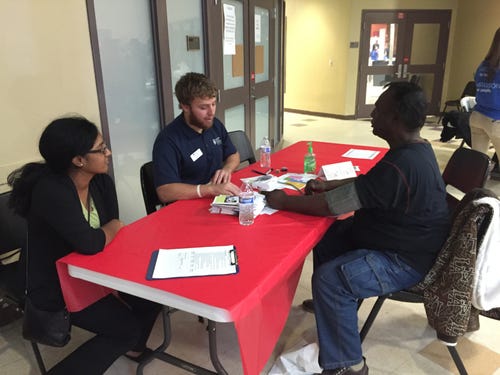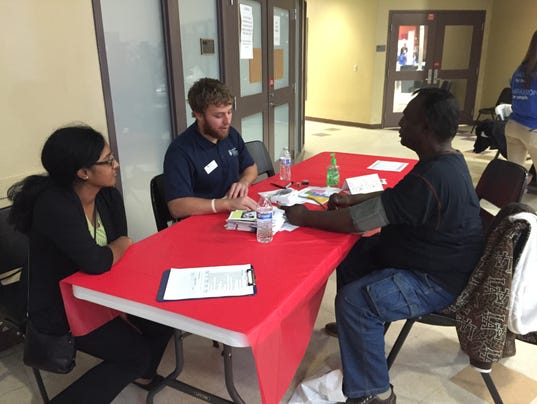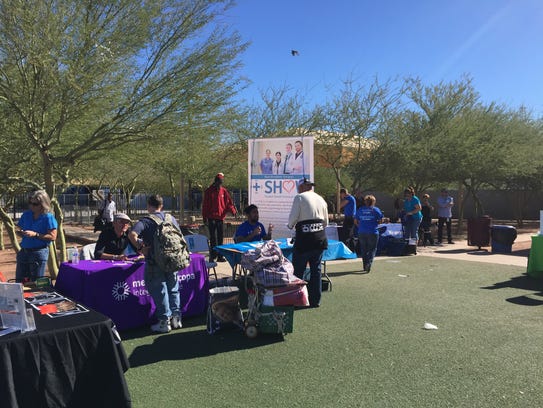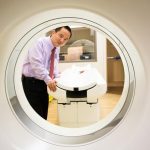Every day, more than 1,000 people visit the 12-acre Human Services Campus in downtown Phoenix, seeking food, shelter and medical treatment. In the past, most medical services closed on weekends, and the homeless population either relied on ambulances or suffered through an illness or injury.
Students from Arizona’s three public universities teamed up in August to create the Student Health Outreach for Wellness (S.H.O.W.) Community Health Initiative to help combat the weekend gap in health services and give students real-world experience. More than 75 students from Arizona State University, University of Arizona and Northern Arizona University volunteer for Saturday shifts.
They did again this weekend, treating homeless people for a variety of ailments and advocating on their behalf, at S.H.O.W.’s Second Annual Health Fair.
Orley Farnum heard about the health fair and came to get a few tests. It was his first time at the clinic.
“It’s a great service to have available,” he said. “It’s a one-stop shop for those of us that can’t get out and about.”
At a nearby table, ASU junior Alexis Luna handed out pamphlets and answered nutrition-related questions.
“So many people’s gut reaction is to avoid contact with any homeless person they see,” student director and ASU senior Sukhi Singh said. “With S.H.O.W., we teach our advocates the opposite: to treat them as a human being. They get to tell us their stories.”
Singh started volunteering with S.H.O.W. two years ago. The pre-medical and finance student wants to work in healthcare management. He said the experience helped him form his passion and learn how to be a leader.
“We were able to start this clinic up as students,” he said. “We became very invested in it.”
S.H.O.W. spokeswoman Nikita Satapathy said a majority of the student volunteers are in pre-health programs, but many are journalism, social work and business students.
“We try to expand our reach to multiple majors because healthcare is an ever-changing field, and we need all the expertise we can get,” she said.
The clinic combines professionals from different medical fields and allows them to work together to address a patient’s needs, Harrell said. Mental health, drug counseling, hearing care, dentistry and physical health services are all available. This interdisciplinary, holistic approach is what makes S.H.O.W. unique.
Getting students into the field helps them see the homeless population beyond stereotypes and objectification, Human Services Campus Managing Director David Bridge said.
“It gives them compassion,” he said. “A lot of our clients have jobs. Having this clinic open on the weekends really helps them.”
Singh said the coolest part about the program was being able to meet and work with some many different patients and professionals.
“Literally, these schools are only a couple blocks from each other downtown, and they’ve never worked together like this in the past,” he said. “We can learn a lot from each other.”




